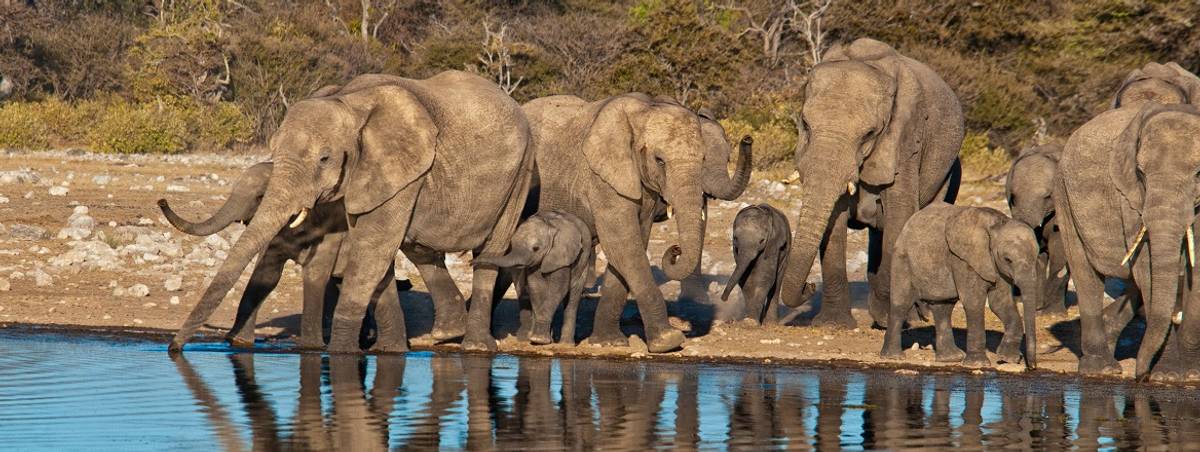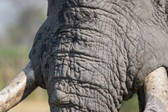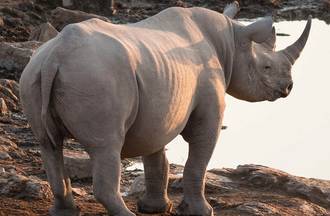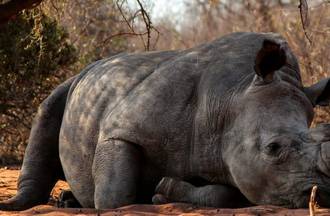Combatting the Illegal Wildlife Trade in West and Central Africa: Phase I
This project conducted the first regional knowledge and capacity assessment on illicit financial flows connected to the illegal wildlife trade (IWT) in West and Central Africa.
Since 2015, West and Central Africa has emerged as the largest source and transit hub for forest elephant ivory, pangolin scales, and African rosewood in the global illegal wildlife trade (IWT). The industrial scale of the multi-ton, multi-product seizures originating in the region clearly demonstrates that profit-driven organised crime groups are running the trade. Yet while the significance of the region in global IWT flows is increasingly recognised, very little is known about the financial aspects of these criminal operations.
Increasing the use of financial investigations in IWT cases has been recognised as a priority by the Economic Community of West African States (ECOWAS) and the Financial Action Task Force (FATF). However, the financial dynamics of IWT remain underexplored.
This project responded to these calls to action by producing the first high-level knowledge and capacity assessment of the ability to tackle IWT using financial tools in West Africa. In doing so, it sought to advance the ‘follow the money’ approach to IWT research through broad engagement with regional stakeholders and financial intelligence units.
Project team
Aims and objectives
Based on 89 interviews with key stakeholders in West and Central Africa and a survey of 12 out of 17 financial intelligence units based in the member states of the Inter-Governmental Action Group against Money Laundering in West Africa (GIABA), this project aimed to assess the extent to which the financial dimensions of IWT are investigated in the region.
Working with GIABA, the project team analysed the legislative, institutional, and inter-agency frameworks present in West Africa for investigating the financial dimensions of IWT. The final report put forward a series of recommendations tailored towards regional bodies, national governments, private sector actors and the donor community to support the overarching objectives of the West Africa Strategy on Combatting Wildlife Crime, which is to be adopted by ECOWAS heads of state in 2021.
The project also responded to the FATF’s 2021 review of global financial action against IWT, following its call for the greater use of financial investigations in wildlife cases.
Funding
Deutsche Gesellschaft für Internationale Zusammenarbeit
Funding for this project was provided through the global project ‘Partnership against Poaching and Illegal Wildlife Trade in Africa and Asia’, implemented by the Deutsche Gesellschaft für Internationale Zusammenarbeit (GIZ) on behalf of the German Federal Ministry for Economic Cooperation and Development (BMZ) and the German Federal Ministry for the Environment, Nature Conservation and Nuclear Safety (BMU).
Project outputs
The widely read report ‘Illegal Wildlife Trade and Financial Investigations in West Africa’ was published in April 2021 in English, French, and Portuguese.
In May 2021, RUSI held a launch event attended by over 100 stakeholders across law enforcement, government, the financial sector, and civil society. Presenters included Muazu Umaru, Director of Policy and Research at GIABA, Kelechi Onwuegbule, Head of the Natural Environment and Wildlife Trade Crimes Analysis Unit of the Nigerian Financial Intelligence Unit, and Mr Charles Balet, Executive Permanent Secretary of the Asset Recovery Inter-Agency Network for West Africa (ARIN-WA ).
In August 2021, Alexandria Reid and Tom Keatinge discussed the findings of the report on the podcast ‘Financial Crime Insights'.
Impact
The project helped increase regional dialogue and awareness about the financial components of IWT in several ways. Through a region-wide workshop attended by 32 representatives from West African financial intelligence units, law enforcement bodies, wildlife authorities and government agencies, the project was able to facilitate dialogue between regional actors who have not considered IWT a relevant security threat in the past.
The project also supported the achievement of the objectives of the West Africa Strategy on Combatting Wildlife Crime, whose Strategic Priorities include a commitment to use ‘existing systems for fighting corruption, fraud and money laundering to support the fight against wildlife crime’.
In accordance with recommendations made in the report, the GIABA Secretariat is committed to reviewing regional progress on IWT bi-annually. RUSI remains engaged in supporting GIABA Member States to include IWT in their national risk assessment (NRA) of money laundering and terrorist financing risks.
Key findings were also provided to policymakers across Southeast Asia (a key destination for wildlife products sourced in Africa) through the Asia Pacific Group on Money Laundering (APG) annual report, published in 2021.
The paper received significant high-level press attention, with the project activities covered by BBC News, Der Spiegel, The Independent, BR24, Policing Insight, ACAMs/Moneylaundering.com, and The National, among others. All outlets highlighted the importance of the financial dimensions of illegal wildlife trade in the region, helping achieve the project goal.

















